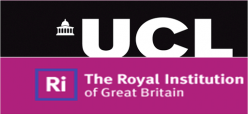Her ambition to be a leading academic scientist dates back to 1987 when she started her undergraduate studies. In 1992, she graduated and received the award for top academic achievement in Chemistry at Vietnam National University in Hanoi and was selected to study at the University of Amsterdam under a NUFFIC (the Netherlands organisation for international cooperation in higher education) program, under which she embarked on a career in research.
In 1994, she was selected for an EU-funded PhD position in Biochemistry. She developed a method to analyse different types of lipids in rat kidney and urine to study the renal toxicity of N-phenyl anthranilic acid, an agent inducing renal papillary necrosis and mefenamic acid, a nonsteroidal anti-inflammatory and analgesic drug. The outcome was that lipids could be used as a non-invasive marker for renal papillary necrosis, a major disease caused by long term abuse of analgesic drugs.
In 1999, she undertook postdoctoral work in medicinal chemistry at Aston University and developed a method to synthesise new cell membrane-permeable fluorescent analogues of the cyclic nucleotide second messengers, cAMP and cGMP, as sensors to study cellular mechanisms of memory storage. This first postdoc period provided her with advanced practical experience in chemical synthesis, which proved very valuable for her later research in nanotechnology.
In 2001, she moved to the United States to take advantage of pioneering work in nanotechnology, an emerging and rapidly growing field of science. She brought together her previous skills to synthesise nanoparticle-based sensors for biological assays. An important feature of this first phase of work in BioNanotechology was the demonstration of the power of nanotechnological tools to simplify conventional bioanalytical assays, which results in substantial cost and time savings at the point of use. She developed a unique, sensitive, and highly specific immunoassay system for antibodies using Au nanoparticles (NPs). To exploit further the unique properties of Au NPs, a novel technique was developed for the synthesis of fluorescence-based nanosensors using Au NPs as a template. This baptism in nanotechnology in the USA gave her an insight into the field and convinced her that this was where her future lay.
In 2003, there was an opportunity for her to move a step forward in gaining an independent research career in nanotechnology, when she joined the Liverpool Centre for Nanoscale Science. This position has provided a strong interdisciplinary environment (e.g., PGNOW for glycosaminoglycan studies, cancer research and tissue engineering), in which she have gained knowledge of biomolecular sciences, and developed close collaborations with those interested in applying these new approaches to the study of biological problems. She also has established strong collaborations with physicists in UK and abroad to study physical properties of NPs (e.g., magnetic order within individual Co NPs and magnetic interactions between them).
In 2005, she was awarded a prestigious Royal Society University Research Fellowship. She was based at Department of Chemistry (ranked 7th in the UK in 2008 RAE) and School of Biological Sciences.
In 2009, she was appointed a UCL-RI Readership (Associate Professor) in Nanomaterials and based at The Davy Faraday Research Laboratory, The Royal Institution of Great Britain, the oldest independent scientific research body in the world.
In 2013, she was promoted to a Professor of Nanomaterials and based at UCL Healthcare Biomagnetic and Nanomaterials Laboratories, at the Royal Insititution and Department of Physics and Astronomy, Univeristy College London. She leads a very dynamic research group conducting cutting edge interdisciplinary research on the design, and synthesis of nanomaterials for biomedical applications.
Do not undertake a scientific career in quest of fame or money. There are easier and better ways to reach them. Undertake it only if nothing else will sastify you; for nothing else is probably what you will receive. Your reward will be the widening of the horizon as you climb. And if you achieve that reward you will ask no other.
Celilia Payne-Gaposchkin (1900-1979)
